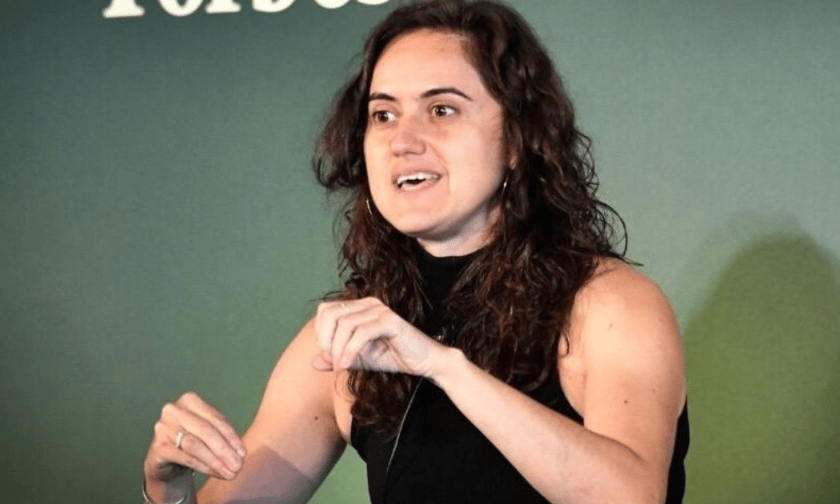

Floodbase, a leading data and structuring platform, is aiming to redefine the flood insurance landscape in the US, particularly with its innovative Golf Tees-to-Green Flood Insurance Program in exclusive partnership with Amwins. This unique program is designed specifically for golf courses and fills a critical gap left by traditional flood insurance products.
“Golf courses are often in flood-vulnerable areas,” said Bessie Schwarz (pictured), CEO of Floodbase. “And yet they have virtually no options to cover what is, in many cases, their biggest asset and revenue driver—the course itself.”
Traditional flood insurance primarily covers infrastructure like clubhouses and equipment but fails to address the substantial risks posed to the courses themselves. When a flood strikes, these courses can suffer massive damage and face prolonged closures, leading to significant revenue losses.
“For example, the Buenaventura Golf Course in California has been closed since January 2023 due to atmospheric rivers... with over $10 million in damages and is still under repair,” added Schwarz.
The partnership between Floodbase and Amwins emerged organically from a shared recognition of these gaps in traditional coverage. Amwins brought deep expertise in the insurance market, particularly a track record of introducing advanced parametric products, while Floodbase provided cutting-edge technology and data-driven insights.
“We’ve been working very closely with Alex Kaplan of Amwins, who is an amazing leader in the parametric insurance market. We decided a couple of sectors of the economy really were low-hanging fruit, and golf courses are just the first of several that we have in the market,” Schwarz explained.
The Tees-to-Green solution leverages the power of satellite technology to offer a parametric insurance product, distributed by Amwins, that can provide payouts quickly, addressing the unique needs of golf courses. Unlike conventional hydraulic models that simulate flood scenarios based on historical data, Floodbase’s technology directly observes where floods have occurred using a combination of AI and satellite data. This approach enables real-time mapping and assessment of flood risks, ensuring that coverage is accurate and timely.
“We’re using AI to fuse together data from public and private satellites, as well as ground-based hydrological data, to create a multi-sensor look at what’s going on,” Schwarz explained. “This is a massive opportunity, I think, that’s sort of hidden under the surface. The traditional products just can’t fill the gap here.”
This program is not just a standalone initiative but part of a broader effort by Floodbase to extend parametric insurance coverage to other vulnerable sectors and communities. Schwarz’s vision is clear: parametric flood insurance has the potential to revolutionize the industry by offering coverage where traditional insurance has failed, particularly in regions and sectors that are highly susceptible to climate-related risks.
“Flooding is the most common and costly peril, and clearly there’s a big gap that is left behind by traditional flood insurance,” she asserted. As such, the technology Floodbase has developed is now poised to close that gap, enabling a range of new insurance products that can be tailored to specific needs.
Floodbase’s work extends far beyond the golf industry – the company is actively engaged in projects that serve some of the world’s most vulnerable communities. In Mozambique, for example, Floodbase has partnered with African Risk Capacity and local insurers to offer parametric flood insurance to smallholder farmers. These farmers, who are often at the mercy of unpredictable climate events, now have access to insurance products that provide critical financial support in the aftermath of floods, helping them maintain their livelihoods.
“This is a low $1 premium... but it really makes a huge difference when a cyclone hits and you have to replant, cover crop loss or consider taking your kids out of school to offset expenses,” said Schwarz.
And, as the climate crisis intensifies, the need for innovative insurance solutions is becoming increasingly urgent. Schwarz envisions a future where parametric insurance is as mainstream as traditional products, but with far greater reach and flexibility. The challenge now lies in educating potential buyers - golf courses, municipalities, and farmers - about the availability and benefits of these new insurance options.
“What needs to happen now is we have to help educate the end buyers... there is a new option for them,” she said. “We’re really trying to leverage that to the very fullest.”
